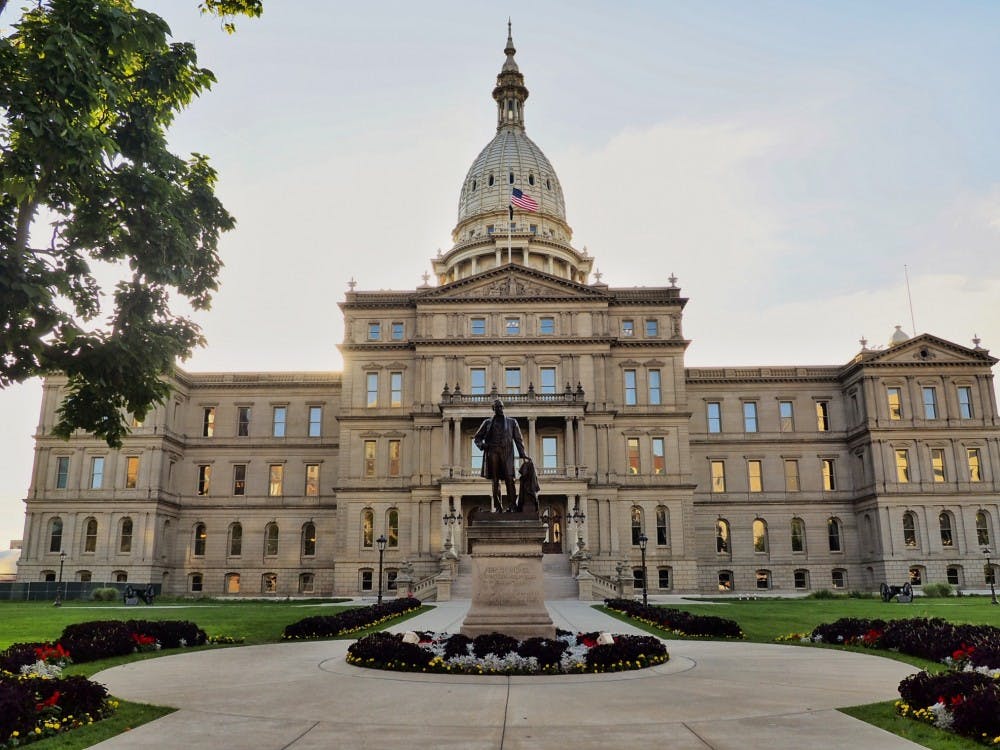U.S. Sens. Gary Peters and Debbie Stabenow announced on April 3 $2,857,209 funding in community development block grants and emergency solutions grants to help mid-Michigan cities respond to coronavirus, according to a press release.
The funding was included in the Coronavirus, Aid, Relief and Economic Security, or CARES act.
Community development block grants provide cities aid to prevent the spread of coronavirus and emergency solutions help prevent the spread of coronavirus in the homeless population, according to the press release.
East Lansing is receiving $289,484 in community development block grants, according to the press release.
Lansing is receiving $1,203,250 in community development block grants and $608,455 in emergency solutions grants, according to the press release.
With the continued rise of COVID-19 cases in Michigan, Gov. Gretchen Whitmer and Peters held town hall meetings this week to provide updates on their efforts to help Michiganders impacted by the coronavirus pandemic and answer their questions.
Peters hosted Telephone Town Halls on Tuesday, March 31 and Wednesday, April 1 to discuss the recently enacted CARES Act and resources available to workers, families, small businesses and medical professionals.
“There’s no question, this is just an incredibly challenging time for families all across our state,” Peters said. “Especially (now) that our schools and businesses are closed and the fact that we all have to be physically distant from each other. I don’t like saying social distance because we still need to connect with each other.”
Peters said he has been working closely with Whitmer and the congressional delegation of the leaders as they put together what is necessary to make sure that everyone gets through this pandemic.
“Every order that I’ve issued weighs heavily on me,” Whitmer said during her town hall live broadcast April 2. “I know that issuing the stay-at- home order creates additional hardship. But here’s what we also know, COVID-19 is a novel virus. It is incredibly contagious and it is deadly. There’s no cure, there’s no vaccine for COVID-19. … That’s precisely why these aggressive measures are necessary.”
Whitmer said with the help of Peters, they have been working hard to extended unemployment from 20 weeks before to now 39 weeks. She also mentioned having protections so that people who are unable to pay rent due to unemployment can’t get evicted from their homes.
“We got to make sure people have income coming in so that they can buy food and keep a roof over their heads,” Peters said. “And as we know many, many families live one pay-check away from a financial disaster, which is why this money has to get out quickly to families.”
One of the biggest parts of the CARES act, which has been passed and signed by President Trump, is dealing with the economic fallout from all of this, according to Peters. Whitmer said due to an extreme increase in the percentage of people applying for unemployment, she has loosened the terms by which people need to apply.
“You can qualify for unemployment from the day you lost your job,” Whitmer said. “We will no longer require all of the owner’s paperwork that once was. We’ve expanded how long you can be eligible. And we’re waiting from the federal government for the authority to enhance that with an additional $600 as was promised, but we need their authority to make it a reality.”
Peters mentioned part of this legislation is to protect small businesses and their employees, so they can stay in place. In order to do that, Peters said he has expanded loans that are available to the small businesses administration.
“I say these are loans, but they are forgivable. I’ve turned it into a grant basically,” Peters said. “It’s really important that once the public health crisis is over with ... that we get the economy moving again.”
According to Michigan Department of Health and Human Services, or MDHHS, Chief Medical Executive and Chief Deputy Director for Health Dr. Joneigh Khaldun, who was also present during the governor’s two hall live feed, many hospitals, especially in southeast Michigan, are at capacity.
“If you are in Elk Rapids or Bad Axe or any other part of Michigan and you happen to be a healthcare provider who is not busy taking care of COVID-19 patients but you want to help, we’re asking that anyone with this kind of training can serve coming into southeast Michigan where the most acute case-load has grown already,” Whitmer said.
Peters said he is particularly concerned about the rural hospitals to make sure that they have the financial resources to get through the public health crisis.
As the city of Flint declared night-time curfew beginning Thursday evening, Whiter was asked if she envisions a statewide curfew. She responded that while she trusts Flint mayor Sheldon Neely’s judgement for his community. In terms of statewide curfew, she hasn’t determined that step as necessary at this point.
“The best thing we have going for us is that the vast majority of people are taking this very seriously,” Whitmer said. “They are doing the right thing. … And they’re putting peer pressure on others to do the same.”
During the town hall meeting, Whitmer was also asked how she intends to enforce the rules — including the options of tickets, fines and even jail — for the people who are still gathering in large crowd and not maintaining social distance.
"We know that people that are out there congregating and flouting the order are putting others at risk,” Whitmer said. “We also know that we do have some tools for enforcement that we will use whether it is a fine or just simply being dispersed from a gathering. But I think I've seen some other states take some more aggressive measures and that is always possible.”
Support student media!
Please consider donating to The State News and help fund the future of journalism.
Discussion
Share and discuss “2 million in grants provided to mid-Michigan cities for coronavirus response” on social media.








